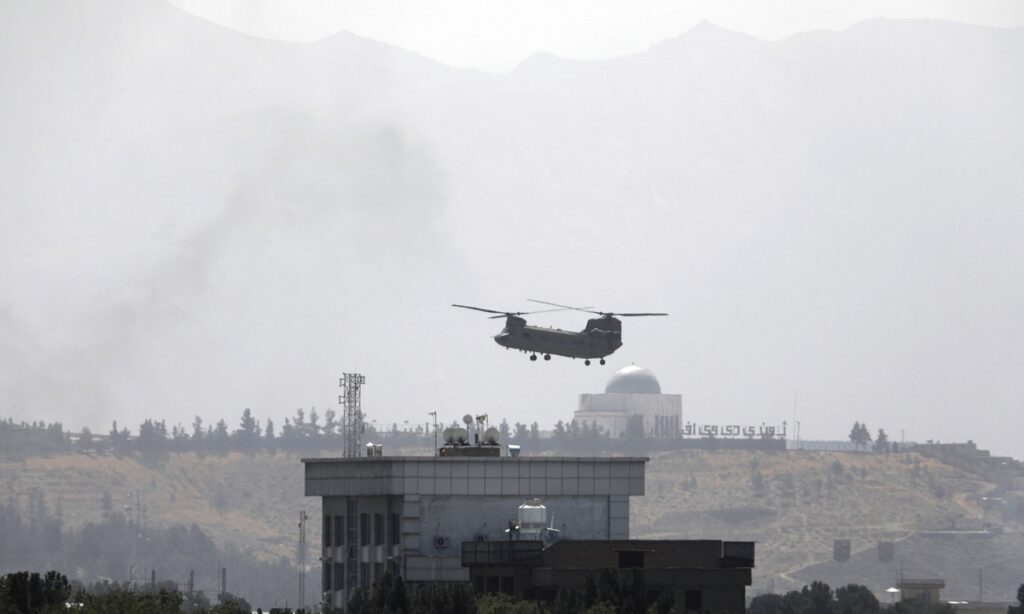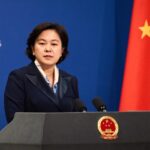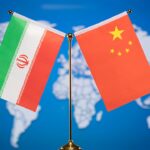As the Taliban took control of the presidential palace in Kabul and declared “the war is over” in Afghanistan, US’ unhesitant abandonment of its allies to evacuate its embassy personnel and citizens from the country has dealt a heavy blow to some media and US-ally-believers in the island of Taiwan, with many fearing that the island will become the next chess piece that the US will cast away as it has done with Vietnam and Afghanistan.
The pullout of the US personnel from the war-torn Afghanistan in military helicopters that scrambled to take off from the embassy rooftops has reminded many of the same scenario seen in Vietnam half a century ago, reported a number of media outlets in the island of Taiwan, including udn.com and TVBS.
Some internet users from the island posted comments saying “Yesterday’s Saigon, today’s Afghanistan, and tomorrow’s Taiwan?” implying that the so-called alliance that Taiwan has forged with the US is nothing but an empty promise that would eventually “leave the Taiwan people hurting alone.”
Some have also called upon the Taiwan regional leader Tsai Ing-wen to stop chasing after and relying on a country with little credibility. Others asked if Tsai would flee to the US for shelter if the situation goes out of control.
An Op-Ed in udn.com said that the unexpected end in Afghanistan has “shocked” US allies and partners, who have become wary of turning in the safety of Taiwan in the hands of US as the latter may pull off the same tricks played in Kabul.
“The US withdrawal from Afghanistan will also have a global impact, especially weighing on its image and credibility,” the Op-Ed in a Taipei-based newspaper said, “as Washington’s strength in maintaining the global order will be challenged, and the power confrontation in Indo-Pacific strategy targeting China will be questioned.”
The key issue is that if a war breaks out across the Taiwan Straits, will the US fulfill its commitments and take military intervention, the report asked, as the US “blurry” policy and its snap decision on the Afghanistan issue have left such a commitment to Taiwan “full of question marks.”
While some hold the opinion that Taiwan’s position is different from that of Afghanistan, there is an undeniable common characteristic between the two, that is, the heavy reliance on Washington.
The Op-Ed pointed out that the US retrieval came only less than a month after US President Joe Biden assured the US-backed government in Kabul of the White House’s diplomatic and humanitarian support. “In a similar way, US claimed its ‘rock-solid’ support for Taiwan but once conflicts occur, Taiwan’s future hangs alone by a thread,” the article reads.
An article in the New York Times by Steven Erlanger, the Times’ chief diplomatic correspondent in Europe, entitled Afghanistan’s Unraveling May Strike Another Blow to US Credibility, argued that at a time when many in Europe and Asia were hoping that Washington would reestablish US’ firm presence in international affairs, the retreat has “heightened the sense that America’s backing is no longer unbounded.”
The article especially mentioned the island of Taiwan, along with Ukraine, the Philippines and Indonesia, who now feel the US’ hesitation “all the more strongly” among others across the globe.
A US Chinook helicopter flies over the U.S. Embassy in Kabul, Afghanistan on Sunday. Helicopters are landing at the US embassy there as diplomatic vehicles leave the compound as the Taliban advance on the Afghan capital. Photo: VCG




